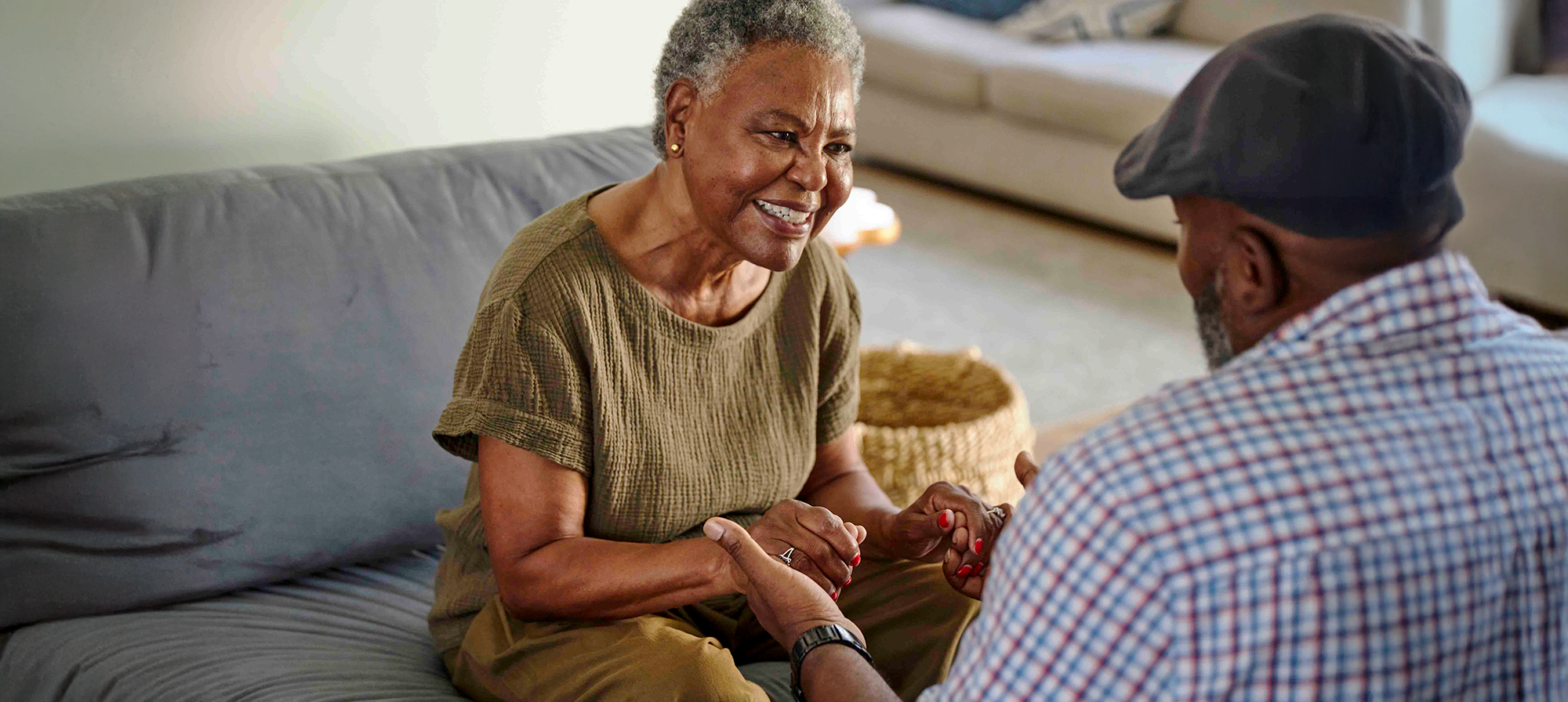Music is an integral part of everyday life. But it’s more than entertainment. Music as medicine can ease the symptoms of many common health conditions.
Think about the role music has played in your life. Maybe you’ve noticed that listening to a soothing piece of music eases your stress and calms your body and mind. Maybe certain songs with funky, fast-paced rhythms get you up and moving to the beat.
Perhaps somber music—like a score from a sad movie—sparks a melancholy mood. Or maybe when you hear a song that was played at your high school prom or wedding, you’re struck with a wonderful sense of nostalgia.
Music impacts our lives in powerful ways. Across every culture, people have been singing, playing, and listening or dancing to music for over 35,000 years. It is an innate part of the human experience.
Music making is also a skill unique to humankind, except perhaps for the sounds made by songbirds, insects (think crickets), and certain kinds of marine mammals (like dolphins and whales). Some researchers believe there may even be a genetic basis for humankind’s evolutionary affinity and talent for music.

Music goes a beat further
Music does more than soothe, excite, or entertain us. Whether you’re listening to it, making it, or dancing to it, music engages the brain, body, and emotions in deep and often therapeutic ways.
Making music is thought to strengthen neural networks and boost concentration and attention. It sparks creativity and imagination. It evokes emotions and memories, thus adding rich meaning to people’s lives.
But music does even more, says the research. You may be surprised to learn that it enhances your health—on every level.
Music as medicine for your body
Findings suggest that merely listening to music may help:- Lower stress
- Lower your heart and breathing rates
- Ease muscle tension
- Lower blood pressure
- Help you get to sleep
- Boost your immune system
- Help you better handle pain or discomfort
- Boost exercise performance and motivation (upbeat, fast-tempo music)

Music as medicine for your mood
You’ve likely heard the famous quote from English author William Congreve, written in 1697: “Music hath charms to soothe a savage beast.” That quote may be old, but modern-day research suggests there’s something to it. Music may help:
- Boost your mood through an uptick in feel-good brain chemicals like dopamine, serotonin, and oxytocin
- Ease anxiety and depression
- Help you express, process, and manage your emotions
Katie, a 67-year-old health care worker, describes how singing and performing in a local women’s chorus has bolstered her mental and emotional well-being in big ways:
“Singing lifts my mood by demanding my full attention and focus. This shuts off all that inner ‘daily drama talk’ about doctor’s appointments, the DMV test, ailing parents, rent increases, my living situation, political strife, or other global crises, etc. Singing unites my brain with a singular purpose—hit the right note!”
Katie also describes the powerful way in which music evokes certain emotions:
“Music equals passion. I love beautifully executed music, and to be part of that outcome [is] exhilarating. It’s a dopamine rush, as well. It’s mind-blowing. The experience brings me to tears—the beautiful music and the powerful lyrics—both bring me to tears.”

Music as medicine for your brain
Listening to music, singing, or playing a musical instrument have all been found to protect and even boost cognitive function in a host of ways.
When learning to sing or play a musical instrument, your brain has to work and think really hard. It has to learn lyrics, notes, chords, melodies, tempo, and rhythm, along with the body mechanics and hand coordination involved in playing an instrument. It’s an intense cerebral workout that can help strengthen the brain. In fact, research suggests music may:
- Help protect the brain from declines in cognition as you age
- Slow the progression of mild cognitive impairment to dementia
- Support better cognitive function and well-being in those with Alzheimer’s disease
- Facilitate stroke recovery
- Increase the growth of gray matter in certain regions of the brain
- Enhance the brain’s ability to learn and remember new information
- Improve motor control, speech and language problems, and cognitive deficits in people with neurodegenerative disorders, such as Parkinson’s disease and traumatic brain injuries
Lindsay Zehren, a board-certified music therapist with 15 years’ experience and advanced training in neurologic music therapy, describes what happens inside the brain when it’s exposed to music:
“Music is the only thing so far that we have discovered as a human race that lights up the entire brain at the same time. So, because of that, music therapists are able to use the elements of music—like melody, harmony, rhythm, timbre, and texture—to work around the [brain] damage [from conditions] such as Parkinson’s, Alzheimer’s, or traumatic brain injury . . . We can use all of those elements in music to create new neural pathways.”
Zehren also describes some of the ways music and music therapy may help improve memory function in those with Alzheimer’s disease or other forms of dementia:
“There’s a lot of research on how memories are tied to music. If music is [associated] with a memory, that memory is more easily retrieved. And that’s because music is tied to all the areas of the brain at once."
Learn about a diet that may help slow brain aging.

Music as medicine for your relationships
Music can also help forge deeper and more joyful connections with others—especially when playing and/or performing music in a group. Music is a universal form of communication—one that can transcend language barriers or other differences.
Research suggests it may:- Promote positive feelings for others
- Enhance cooperation
- Boost a sense of belonging, group identity, and community
- Strengthen social bonds with others
Katie describes how singing in the women’s chorus has helped pull her out of isolation and enhanced her ties with others in the group:
“First and foremost, I think it’s the mission of the music that we perform. It’s very socially conscious and relevant. And we purposely try to be very, very inclusive and respectful of differing cultures, age groups, genders, etc. Music is a powerful way to cross barriers, to enhance empathy, to convey love and compassion for all—including myself.”
Katie goes on to describe how singing with others also helps pull her out of isolation:
“I’m an introvert at heart. So, I’ve always been content at home, entertaining myself with projects. But . . . there comes that point where your isolation falls in on you…and the downward spiral happens—isolation, loneliness, depression. To be with like-minded individuals, to have friends who want to create a community within a community is wonderful. And it forces me out of isolation.”
Katie adds that the cooperative nature inherent in singing with other chorus members fosters a deep sense of group identity and belonging:
“Learning music is something I did not think I could ever do. But there is something about the collective struggle we are all in . . . we are all in it for each other’s success. When you achieve that—together—it is such a sweet, sweet, spot. Joyous!”

Exactly how does music work its therapeutic magic?
While ample research supports the concept of music-as-medicine, figuring out how it works is more complex.
Music therapists and researchers think that the healing powers of sound and music depend on several variables. The listener’s frame of mind, focus, intent, posture, and listening environment can play a role. The type of music can, too. These factors can be hard to control and duplicate in a scientific setting.
That said, some theories suggest that:
- Sound is essentially vibration, and it is absorbed by the body. While more research is needed, some findings suggest that sound has the power to affect cells—even sparking the birth of new cells, along with their ability to colonize, differentiate, and migrate within the body
- Sound alters emotions by boosting feel-good chemicals in the brain
- Sound boosts the body’s supply of oxygen. Music therapies that involve singing and chanting cause you to take in more oxygen—which helps support the health of all the cells and tissues in your body. Singing can strengthen the lungs
- Sound supports the body’s many functions. The rhythmic patterns in music can help your body systems function in a more harmonious and balanced way. The human body has its own internal rhythms, too—from the rhythm of our hearts and lungs to that of our digestive tract and more
- Sound can alter your state of mind. Researchers think that the tempo, beat, and rhythmic patterns of varied kinds of music can affect the brain in different ways—triggering excitement, energy, or a peaceful, trance-like state
Zehren thinks that the benefits from music are more powerful if you’re listening to it actively rather than passively. An example of passive listening is having music on in the background while you’re busy focusing on other tasks and not really paying attention to the music:
“When you're listening to music [passively], that lights up one area of the brain . . . [but] when you're actively engaged in music listening . . . that's where we see the entire [brain] fully light up.”
Zehren explains that active listening happens when you have a goal or intention in mind when listening to music—like easing stress or boosting your mood, among others. It also means paying close attention—in a mindful way—to the music and to all your senses to see what the music evokes.

Practical tips to integrate music into your life
Music may already play a big role in your everyday life. You likely enjoy listening to it at many points throughout the day, whether in the car, at home, or while working out.
But if you’d like to explore the healing benefits of music in a deeper way, think about taking some of the steps below:
- Listen to music mindfully and with intention. For example, if you want to ease stress, find a soothing piece of music and listen to it with your full attention. Stop what you’re doing and tune in to the rhythm, melody, and instruments. Shift your focus from internal chatter to the music. Then notice if the music starts to slow your breathing down, calm your mind, or release tension in your body.
- Look for local events held by music therapists. Many music therapy organizations host drum and percussion circles, sing-a-longs, or other group music-making events. These might also include dancing, chanting, singing mantras, or toning. These kinds of events often welcome people of all ages—no musical experience required. Search online for events in your area.
- You might also want to think about music therapy for you or a loved one. Music therapy is a tool that is used more and more often for a wide array of medical conditions in both clinical and in-home settings. It’s a widely recognized and evidence-based treatment that uses music to reach certain therapeutic goals under the guidance of a certified music therapist.
- Download a music streaming app to explore different kinds of music to listen to. Check out new kinds of music you haven’t listened to before. Notice how they impact your mood, emotions, energy, or stress levels. Create (and routinely update) your playlist for your workouts or for doing house chores or yardwork, too.
- Dance to the music. Take a dance class or put on your favorite tunes and dance around the living room a few times each week. Blending music with dancing is doubly powerful for enhancing your mood. And it’s a great way to take the “work” out of your workouts.
- Learn to sing or play a musical instrument. Have you always wanted to play piano, guitar, drums, or another musical instrument? Check online for group or private lessons in your area. You can even take lessons online.
- Join or form a local chorus, rock band, or other musical group. If you already sing or play a musical instrument, think about performing with a group. You don’t have to be a trained or professional musician.
As you weave music more deeply into your life, take note of any positive changes in your mood, stress, energy levels, or physical health. What kinds of music triggered these changes? Does listening to music or making music have a greater impact on you? Do you get more from playing or listening to music alone or with others? Or maybe both? Jot your observations down in a journal.
In time, you will likely find that you’ve tailored your own personalized guide for using music as medicine for much of what ails you. That’s a powerful tool that can support your health and well-being for many years to come. 
Not a Silver&Fit® member? Learn more about everything the program has to offer, including more helpful healthy living tips like this, here on our website.
Katie and Lindsay are not members of the Silver&Fit program. Images used for this article do not depict Katie or Lindsay nor any members of the Silver&Fit program.This information is not intended to take the place of regular medical care or advice.
References
American Music Therapy Association. (n.d.) Frequently asked questions. https://www.musictherapy.org/faq/
Beccacece, L., Abondio, P., Cilli, E., Restani, D., & Luiselli, D. (2021). Human genomics and the biocultural origin of music. International Journal of Molecular Sciences, 22(10), 5397. https://doi.org/10.3390/ijms22105397
Budson, A. E., (2020, October 7). Why is music so good for the brain? Harvard Health Blog. https://www.health.harvard.edu/blog/why-is-music-good-for-the-brain-2020100721062
Chanda, M. L., & Levitin, D. J. (2013). The neurochemistry of music. Trends in Cognitive Sciences, 17(4), 179–193. https://doi.org/10.1016/j.tics.2013.02.007
Chen, W. G., Iversen, J. R., Kao, M. H., Loui, P., Patel, A. D., Zatorre, R. J., & Edwards, E. (2022). Music and brain circuitry: Strategies for strengthening evidence-based research for music-based interventions. The Journal of Neuroscience, 42(45), 8498–8507. https://doi.org/10.1523/JNEUROSCI.1135-22.2022
Cleveland Clinic. (n.d.). Music therapy. https://my.clevelandclinic.org/health/treatments/8817-music-therapy
Marie, D., Müller, C. A. H., Altenmüller, E., Van De Ville, D., Jünemann, K., Scholz, D. S., Krüger, T. H. C., Worschech, F., Kliegel, M., Sinke, C., & James, C. E. (2023). Music interventions in 132 healthy older adults enhance cerebellar grey matter and auditory working memory, despite general brain atrophy. Neuroimage: Reports, 3(2), 100166. https://doi.org/10.1016/j.ynirp.2023.100166
Dictionary.com (n.d.). Music hath charms to soothe a savage beast. https://www.dictionary.com/browse/music-has-charms-to-soothe-a-savage-breast
Dingle, G. A., Sharman, L. S., Bauer, Z., Beckman, E., Broughton, M., Bunzli, E., Davidson, R., Draper, G., Fairley, S., Farrell, C., Flynn, L. M., Gomersall, S., Hong, M., Larwood, J., Lee, C., Lee, J., Nitschinsk, L., Peluso, N., Reedman, S. E., Vidas, D., … Wright, O. R. L. (2021). How do music activities affect health and well-being? A scoping review of studies examining psychosocial mechanisms. Frontiers in Psychology, 12, 713818. https://doi.org/10.3389/fpsyg.2021.713818
Fancourt, D., Ockelford, A., Belai, A. (2014, February). The psychoneuroimmunological effects of music: A systematic review and new model. Brain, Behavior, and Immunity (36), 15-26. https://www.sciencedirect.com/science/article/abs/pii/S0889159113005138
Gassner, L., Geretsegger, M., & Mayer-Ferbas, J. (2022). Effectiveness of music therapy for autism spectrum disorder, dementia, depression, insomnia, and schizophrenia: Update of systematic reviews. European Journal of Public Health, 32(1), 27–34. https://doi.org/10.1093/eurpub/ckab042
Jespersen, K. V., Pando-Naude, V., Koenig, J., Jennum, P., & Vuust, P. (2022). Listening to music for insomnia in adults. The Cochrane Database of Systematic Reviews, 8(8), CD010459. https://doi.org/10.1002/14651858.CD010459.pub3
Johns Hopkins Center for Innovative Medicine. (n.d.). Music as medicine for older adults. https://www.hopkinscim.org/breakthrough/winter-2022/music-as-medicine-for-older-adults/
Levitin, D. J., Grahn, J. A., & London, J. (2018). The psychology of music: Rhythm and movement. Annual Review of Psychology, 69, 51–75. https://doi.org/10.1146/annurev-psych-122216-011740
Linnemann, A., Strahler, J., & Nater, U. M. (2017). Assessing the effects of music listening on psychobiological stress in daily life. Journal of Visualized Experiments:JoVE. (120). https://doi.org/10.3791/54920
Lyu, J., Zhang, J., Mu, H., Li, W., Champ, M., Xiong, Q., Gao, T., Xie, L., Jin, W., Yang, W., Cui, M., Gao, M., & Li, M. (2018). The effects of music therapy on cognition, psychiatric symptoms, and activities of daily living in patients with Alzheimer's Disease. Journal of Alzheimer's Disease, 64(4), 1347–1358. https://doi.org/10.3233/JAD-180183
Machado Sotomayor, M. J., Arufe-Giráldez, V., Ruíz-Rico, G., & Navarro-Patón, R. (2021). Music therapy and Parkinson's Disease: A systematic review from 2015-2020. International Journal of Environmental Research and Public Health, 18(21), 11618. https://doi.org/10.3390/ijerph182111618
Mehegan, L., & Rainville, C. (2020, June 30). Music nourishes and delights: 2020 Music and Brain Health Survey. AARP. https://www.aarp.org/pri/topics/health/brain-health/brain-health-and-music/
Murry, M. (2022, June 29). Music therapy: More than just entertainment. National Alliance on Mental Illness. https://www.nami.org/Blogs/NAMI-Blog/June-2022/Music-Therapy-More-Than-Just-Entertainment
Novotney, A (2013). Music as medicine. American Psychological Association. https://www.apa.org/monitor/2013/11/music
Sihvonen, A. J., Leo, V., Ripollés, P., Lehtovaara, T., Ylönen, A., Rajanaro, P., Laitinen, S., Forsblom, A., Saunavaara, J., Autti, T., Laine, M., Rodríguez-Fornells, A., Tervaniemi, M., Soinila, S., & Särkämö, T. (2020). Vocal music enhances memory and language recovery after stroke: Pooled results from two RCTs. Annals of Clinical and Translational Neurology, 7(11), 2272–2287. https://doi.org/10.1002/acn3.51217
Smithsonian National Museum of Natural History. (n.d.). What does it mean to be human? https://humanorigins.si.edu/evidence/behavior/art-music
Speranza, L., Pulcrano, S., Perrone-Capano, C., di Porzio, U., & Volpicelli, F. (2022). Music affects functional brain connectivity and is effective in the treatment of neurological disorders. Reviews in the Neurosciences, 33(7), 789–801. https://doi.org/10.1515/revneuro-2021-0135
Tang, Q., Huang, Z., Zhou, H., & Ye, P. (2020). Effects of music therapy on depression: A meta-analysis of randomized controlled trials. PloS one, 15(11), e0240862. https://doi.org/10.1371/journal.pone.0240862
University of California, Berkeley. Greater Good Magazine. (2015, January 15). Four ways music strengthens social bonds. https://greatergood.berkeley.edu/article/item/four_ways_music_strengthens_social_bonds/
University of California, Berkeley. Greater Good Magazine. (2016, June 28). How music bonds us together. https://greatergood.berkeley.edu/article/item/how_music_bonds_us_together
University of Central Florida. (n.d.). Your brain on music. https://www.ucf.edu/pegasus/your-brain-on-music/
Wiltermuth, S. S., & Heath, C. (2009). Synchrony and cooperation. Psychological science, 20(1), 1–5. https://doi.org/10.1111/j.1467-9280.2008.02253.x
This article was written by Gail Olson, edited by Kim Reynolds, and clinically reviewed by Elizabeth Thompson, MPH, RDN on April 18, 2024.





